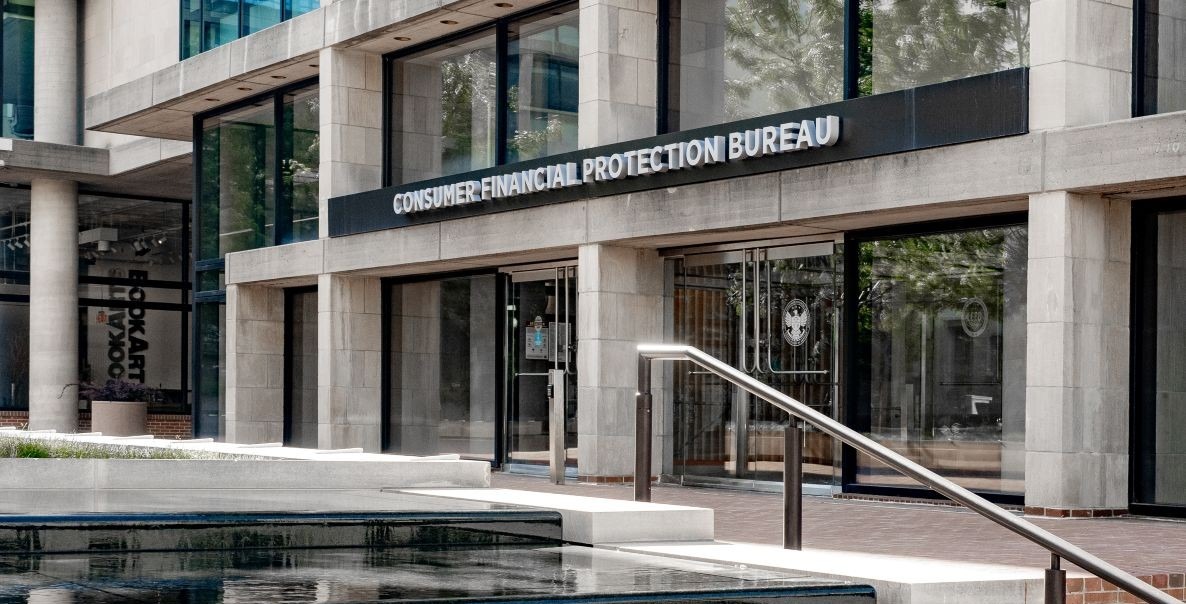You might not know about a tiny federal agency called the Consumer Financial Protection Bureau (CFPB), but it’s helped millions of Americans since it opened its doors 14 years ago.
Our job is pretty simple: We’re here to help everyday people when they’ve been cheated, defrauded, or stolen from by big banks and corporations. When people get endless calls from someone trying to collect a debt they don’t owe, they call us. When they need help getting their life savings back from a fraudster, they call us. When people have any number of problems with their bank, credit card company, or student loan servicer, they call us. And we get to work.
Since its inception, the CFPB has returned $21 billion to more than 200 million Americans who were wronged by financial institutions. It’s also saved Americans countless more by creating new rules that corporations have to follow, or else face investigations and lawsuits. THE CFPB has created rules to remove medical debt from credit reports, cap overdraft junk fees and credit card late fees, and make it safer to use digital payment apps.
In a city like Philadelphia, a majority-minority city where one-fifth of the residents live below the poverty line, people need an agency like the CFPB on their side. Philadelphians can’t afford to wait on hold for hours to try to talk to a human at their student loan servicer. They can’t afford to pay exorbitant junk fees when it could be the difference between feeding their kids or not. They can’t afford to have medical debt they don’t even owe ruin their credit and prevent them from getting a mortgage.
Not having the CFPB tips the scales back in favor of powerful banks, lenders, and big tech corporations who want to raise costs for everyday people to help pad their bottom line.
But recently, my colleagues and I haven’t been able to help the hard-working Americans who need us. That’s because the Trump Administration is trying to shut down the CFPB. President Trump fired our director, who leads the agency, and replaced him with a temporary appointee who ordered us to stop all work. My colleagues and I have literally been locked out of our own offices. They took down the signs on the front of our headquarters building and terminated the building’s lease. And the acting director illegally fired about 170 workers, including me.
Left to fend for themselves
Every day that the CFPB’s staff isn’t allowed to do their jobs is another day when Americans can’t get the help that they desperately need. Recently, my colleagues were supposed to meet with one of those Americans, an 83-year-old pastor named Eva Steege. She has terminal cancer with only months to live. Pastor Steege also has outstanding student loan debt, and even though she qualifies for forgiveness from her years of public service, the Department of Education has failed to process her application. Not wanting her debt to pass to her family members after she dies, Pastor Steege reached out to the CFPB for help. When we received our stop work order, it also meant cancelling her meeting. Now, she has been left to fend for herself.
Pastor Steege is just one of the many Americans who will be forced to fend for themselves if the CFPB is shut down. Unfortunately, the citizens often most affected by shady financial practices are some of the most vulnerable. They’re people living in poverty, service members and their families, and older Americans. These groups are also the ones who can least afford it — and with the least power to change it. The CFPB was created, in part, to balance those power dynamics.
Every day that the CFPB’s staff isn’t allowed to do their jobs is another day when Americans can’t get the help that they desperately need.
Not having the CFPB tips the scales back in favor of powerful banks, lenders, and big tech corporations who want to raise costs for everyday people to help pad their bottom line. The CFPB is the cop on the beat preventing that. When companies don’t have anyone holding them accountable, they can get away with launching sloppier products with nonexistent customer service, knowing that they can brush off any mistakes they make with zero consequences. Without the CFPB standing watch, the financial services you rely on will only become worse.
And while everyday people aren’t getting the help and protection they deserve from the CFPB — help that is mandated by federal law — big banks and businesses are getting more help than ever. Just this week, Republicans in Congress introduced a bill to repeal the CFPB’s rule that would have capped overdraft junk fees at just five dollars. And our new acting director recently dismissed our lawsuit against an unlicensed payday lender that illegally deceived consumers into paying enormous hidden costs and junk fees.
It has been an incredible honor to work at the CFPB. It is full of dedicated and talented public servants that were drawn to the CFPB’s mission-driven focus. Most of us came to the CFPB because we want to stop corporations from defrauding, cheating and stealing from everyday people — and return hard-earned dollars back into the pockets of working Americans.
The CFPB fights for all Americans, Philadelphians included. Now is the time to make your voice heard and tell your representatives to save the CFPB.
The Citizen welcomes guest commentary from community members who represent that it is their own work and their own opinion based on true facts that they know firsthand.
![]() MORE ON THE CONSEQUENCES OF THE 2025 ELECTION
MORE ON THE CONSEQUENCES OF THE 2025 ELECTION



